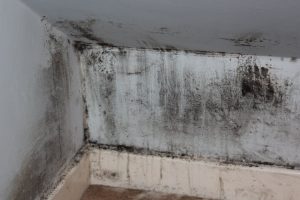Allergies are manifestations of sensitivities in our immune system. They can appear in several different ways, but most commonly they manifest through skin or respiratory problems. The good news is that, when the allergen is identified, treatment becomes much easier. So what should you do when you have a mold allergy? How do you treat this type of allergy specifically? What are the ways to prevent it from manifesting? To find out the answers to all these and more questions about the topic, read today’s text until the end and discover!
What is Mold?
In order to know if the allergy we have is actually to mold, we first need to understand what mold is and why it can affect our health. Briefly, we can say that mold is the accumulation of various microscopic fungi that mainly appear in damp environments. This is, in fact, the ideal condition for them to reproduce and multiply, creating those classic black or dark green stains that are very common in humid environments.
The big problem with allowing mold to spread in places you are in frequent contact with is that these organisms can be harmful to our health in several ways, especially when it comes to allergies. That’s exactly why it’s also important to understand why someone might be allergic to mold.
Why Are People Allergic to Mold?
As we’ve shown, allergies are nothing more than our body’s sensitivity to a particular agent. In the case of fungi, while reproducing, they release spores into the air, which we end up inhaling unintentionally. Although some people have no reaction, in those whose bodies are sensitive, several respiratory complications can occur because of this phenomenon.
Additionally, when fungi come into contact with our skin, people may also have allergic reactions. Although this is less common, it can also lead to various consequences and make it difficult for someone to live normally.
Symptoms of Mold Allergy
Mold itself is just a causative agent, meaning various types of allergies can appear when there’s sensitivity to this type of fungus. When talking about respiratory allergies, for example, it’s very common for mold to trigger rhinitis or even asthma in certain people. In these cases, symptoms include:
- Sneezing fits
- Coughing fits
- Difficulty breathing
- Chest wheezing
- Stuffy nose
- Sensation of chest tightness
As we have already said, there are also cases where mold can cause skin allergies, such as hives and contact dermatitis. In these cases, symptoms that usually appear are:
- Skin rashes
- Red spots on various areas of the skin
- Persistent itching
- Small red or white bumps
- Skin flaking
Regardless of the type of reaction your body has, it’s important to see a doctor so that an accurate diagnosis can be made. That way, it’s much easier to combat any type of allergy.
How Is the Diagnosis Made?
The big problem in identifying the causative agent is that allergic reactions caused by mold can be very similar to other types of allergies, such as to animal dander or even illnesses caused by viruses. That’s why it is often necessary to do specific tests to find out what is really causing your allergy. Once these are done, an allergist can more accurately recommend treatments that will help reduce the complications caused by mold.
Treatment for Mold Allergy
As with most types of existing allergies, the main weapon against mold allergy is prevention. This means avoiding contact with this type of fungus as much as possible. Especially in the summer, when the weather is more humid, it is very common for this type of allergy to become more frequent. That’s why some recommendations to prevent it from spreading are:
- Scrub walls or surfaces where mold is beginning to multiply
- Keep windows open and allow air to circulate as much as possible
- Leave wardrobe and closet doors open, as well as drawers
When it comes to the specific treatment of allergic reactions caused by mold, there are certain measures that can be taken. Upon consulting a doctor, they may prescribe corticosteroids or antihistamine medications to relieve symptoms or even give an injection in more severe cases. Still, they will probably recommend you avoid contact with the causative agent, in this case, mold.
All types of allergies can affect our lives in some way, whether through respiratory problems, skin issues, or even severe reactions that prevent us from living our lives normally. Regardless of which kind it is, if you are allergic to mold, it’s important to understand why this happens and what the main ways to prevent this allergy from affecting you more seriously are. When you have more knowledge about a health problem, it’s always easier to deal with it, even if it isn’t all that serious. And taking care of a small problem can prevent even bigger complications. So take care of your health in every aspect, no matter how minor the complications may seem. You’ll realize how small actions are always worth it.












